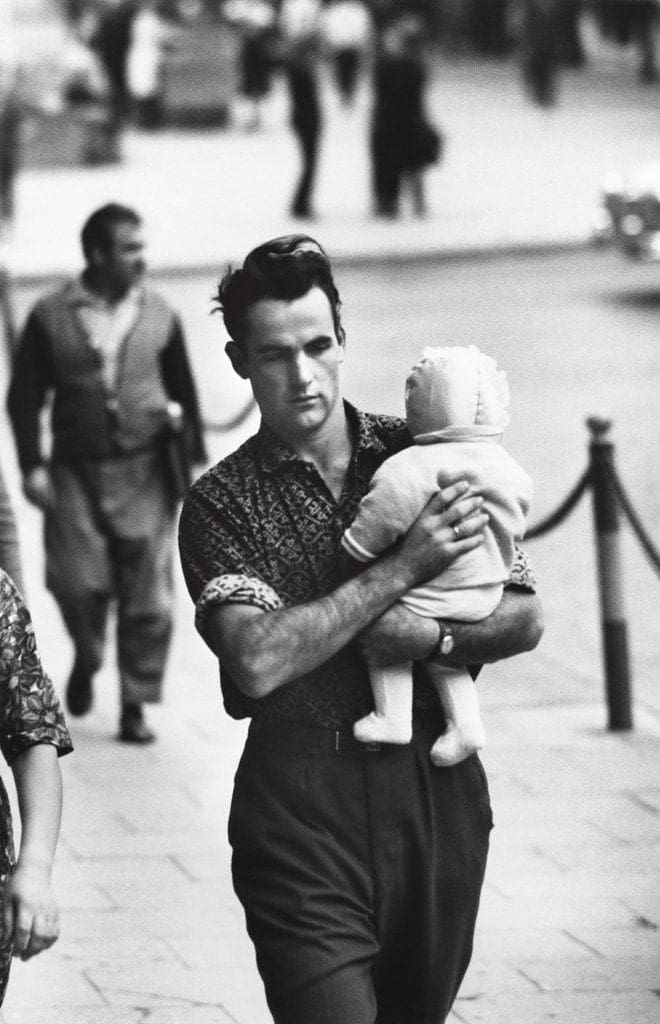Sermon for Pentecost 18, Proper 21B, by the Rev. Daniel Ulrich, Associate Pastor of Grace Lutheran Church, on Sunday, September 27, 2015.
Today’s Gospel reading is an interesting one. There’s a lot going on in just 13 verses. Jesus rebukes John and the disciples for trying to stop a man who was casting out demons in Christ’s name. Jesus talks about losing a reward, causing little ones to sin and being violently drowned for it. He talks about cutting off limbs and tearing out eyes. He talks about worms, fire, and salt. Jesus talks about a lot of stuff in these verses, and none of it seems to fit together. But it all does. Everything that Jesus says in the Gospel reading today teaches us an important fact: WE WILL NEVER LOSE OUR REWARD OF ETERNAL LIFE BY SERVING OTHERS IN CHRIST.
Today’s Gospel reading is an interesting one. There’s a lot going on in just 13 verses. Jesus rebukes John and the disciples for trying to stop a man who was casting out demons in Christ’s name. Jesus talks about losing a reward, causing little ones to sin and being violently drowned for it. He talks about cutting off limbs and tearing out eyes. He talks about worms, fire, and salt. Jesus talks about a lot of stuff in these verses, and none of it seems to fit together. But it all does. Everything that Jesus says in the Gospel reading today teaches us an important fact: WE WILL NEVER LOSE OUR REWARD OF ETERNAL LIFE BY SERVING OTHERS IN CHRIST.
I. Rewards
are given to people who earn them.
Trophies and rings are awarded to athletes who win championships. Bonuses are given to the most productive
workers in the office. A+’s are handed
out to those students who study and ace their exams.
Believers
in Christ also are given a reward.
Christians receive the reward of eternal life. You have been given eternal life, and just
like all other rewards, this one is earned, but not by you. Only Christ has earned this reward.
To
earn eternal life, we must be perfect and follow God’s Law perfectly. Of course, we know we don’t do this, we know
we can’t do this. Looking at our lives
we have to confess that we daily sin much in thought, word, and deed. When we compare our lives to God’s commands,
we plainly see that we’ve broken each and every one of them time and time again. There is no way we could possibly earn
eternal life.
But Christ did.
Jesus, true God and true man, lived a perfect life. He always followed the commands of God in
thought, word, and deed. He only did
what His Father willed, and because of this, He rightly earned eternal
life. But He didn’t do this for
Himself. He earned it for you. Christ lived and sacrificed His perfect life
on the cross to pay for your sins so that God could forgive you. He suffered all the wrath of of God so that you
could be given the reward of eternal life.
II. Receiving
a rewards makes us feel good and we take pride in receiving them. This is even the case with the reward of
eternal life. God has blessed us in His
grace and mercy and it is right for us to feel good and overjoyed in this. We should have a sense of Christian pride,
continually thanking God for this gift.
Unfortunately,
our sinful nature turns our godly Christian pride into sinful, selfish pride, pride
that leads us to cause others to sin, to stumble in their faith. This is exactly what happened with John and
the other disciples. “John said to [Jesus], ‘Teacher, we saw
someone casting out demons in your name, and we tried to stop him, because he
was not following us’” (Mk 9:38). John
and the other disciples suffered from sinful pride. They enjoyed a special place as the Twelve
and they took pride in that place. This
pride compelled them to stop a man from helping others. They didn’t want him to do this miraculous
thing because he wasn’t one of them.
Without
hesitation, Jesus rebuked the disciples by saying, “Do not stop him, for no one who does a mighty work in my name will be
able soon afterward to speak evil of me.
For the one who is not against us is for us. For truly, I say to you, whoever gives you a
cup of water to drink because you belong to Christ will by no means lose his
reward” (Mk 9:39-41). Jesus rebuked
the disciples because this man was part of the group that followed Jesus. He may not have been part of the Twelve, but
he was a follower of Christ. He was a
believer and he was serving others in Christ’s name. The simple fact that this man was able to
cast out demons in Jesus’ name showed that he was a believer. He was showing his faith by serving those in
need and proclaiming Jesus’ name.
Because of his faith, he would not lose his reward of eternal life.
After
speaking well of this man, Jesus described how we can lose our reward of
eternal life. We can lose it by causing
others to sin, to stumble in their faith.
“Whoever causes one of these
little ones who believe in me to sin, it would be better for him if a great
millstone were hung around his neck and he were thrown into the sea” (Mk
9:42). At this point, Jesus pointed
to a young child. However, the “little
ones” Jesus is speaking of isn’t limited just to children. All believers are “little ones” because all
believers have a childlike faith. They
trust in God their Father and His salvation, just as little children trust
their in parents.
When
we cause others to sin, to stumble, we show that we don’t have faith and that
we reject the reward of eternal life.
Just as the disciples’ sinful pride led them to cause another to
stumble, so too our pride cause others to stumble. Full of pride, we refuse to repent of sin
towards other because we don’t want to tarnish our name and admit we’re
wrong. Full of pride, refuse to forgive
others when they have sinned against because they’ve sinned just a little too
much. Full of pride, we become
self-righteous and judge others for their sin, speaking ill of them, all the
while we ignore our sin. In all of this,
we cause others to stumble, we make a mockery of the faith Christ has given us.
When we continue in this pride, when we don’t repent, we lose the reward of
eternal life.
Jesus
tells us what must happen to that which causes us to sin: it must be cast
out. Speaking figuratively He says, “If your hand causes you to sin, cut it
off…. And if your foot causes you to
sin, cut it off…. And if your eye causes
you to sin, tear it out. It is better
for you to enter the kingdom of God with one eye than with two eyes to be
thrown into hell, where their worm does not die and the fire is not quenched”
(Mk 9:43-48). Our sinful pride must
be cut off and torn out by confession. We
must repent of our pride and turn to God our Father, asking for grace and
mercy, praying for His forgiveness.
And
He answers this prayer. God graciously
forgives your sinful pride. He forgives
you when you cause others to stumble.
Christ sacrificed His perfect life on Calvary to forgive all of your
sins, to earn you the reward of eternal life.
And God promises to preserve you in this reward through His Word.
III. Jesus
ends His teaching in our Gospel today by talking about salt. He says, “For
everyone will be salted with fire. Salt
is good, but if the salt has lost its saltiness, how will you make it salty
again? Have salt in yourselves, and be at peace with one another” (Mk
9:49-50). Salt is a preservative,
keeping food good and free from contamination.
Jesus said we will be salted with fire; that is, we will be preserved by
fire. This fire isn’t the hell fire that
He spoke of earlier. It is a purifying
fire; a fire that burns off all impurities and contamination, like our sinful
pride. This fire is the Word of God that
proclaims Christ crucified for us.
God’s
Word preserves us, it strengthens our faith and trust in the Lord. Having been purified of our sinful, selfish
pride, being preserved in faith by God’s Word, we are filled with love towards
others. This love is expressed in
service to others in Christ, it is shown by proclaiming Christ, just as the man
did when he cast out demons in Jesus’ name.
This love brings peace, peace within us and peace with others. When we serve others in Christ’s name, we
won’t lose our eternal life.
Jesus
spoke about a lot in these verses, but He was teaching us one important fact: WE
WILL NOT LOSE OUR REWARD OF ETERNAL LIFE BY SERVING OTHERS IN CHRIST. When you put others above yourself and serve
them with love in Christ, you are at peace and you won’t cause others to
stumble. You show that you are thankful
for Christ’s reward given to you. Praise
God for always for this reward and thank Him from preserving you in it through
His Word. In Jesus’ name. Amen.








